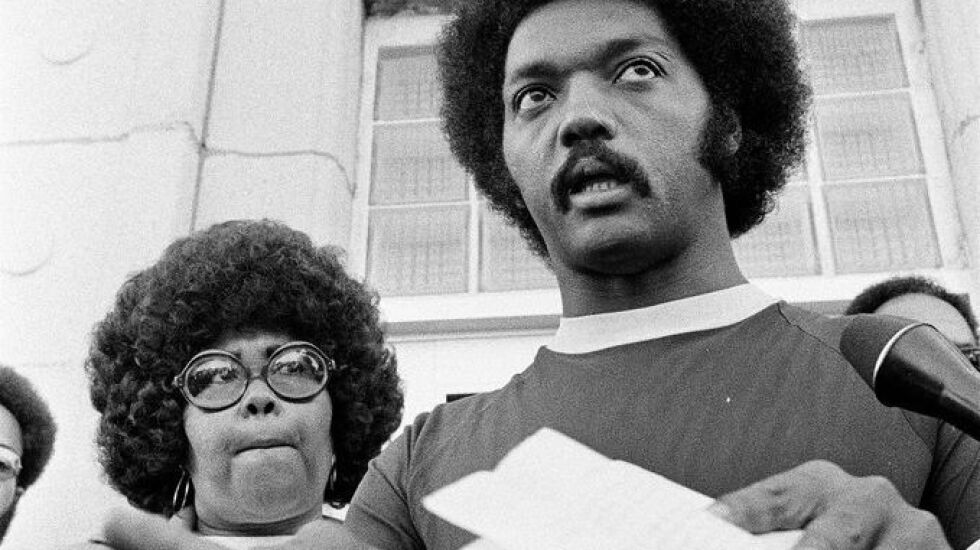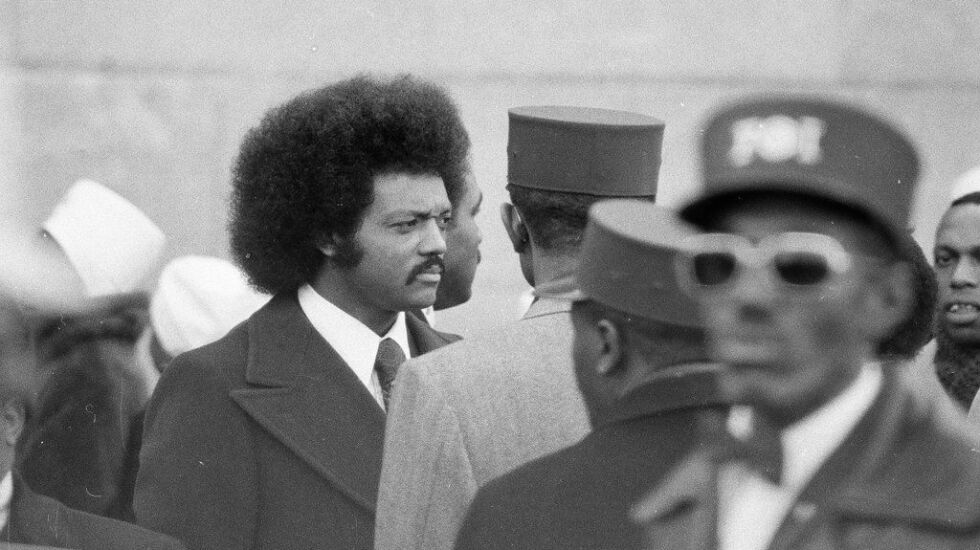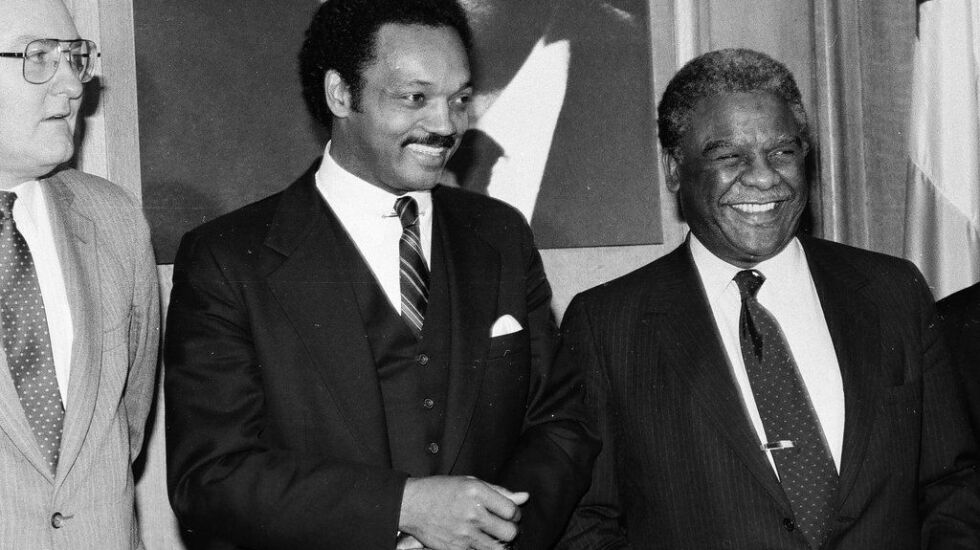
The Rev. Jesse Jackson’s work and activism spans decades, from joining the front lines of the civil rights movement to helping negotiate the release of U.S. prisoners abroad.
Rainbow PUSH Coalition announced Friday that Jackson will step down as president of the group, a merger of two organizations he founded and whose national headquarters is at 930 E. 50th.
The civil rights leader and two-time presidential candidate was diagnosed with Parkinson’s disease in 2017.
The announcement will come at the Rainbow PUSH annual national convention, where on Sunday Vice President Kamala Harris will deliver remarks to the civil rights organization.
Here’s just a few of many highlights from Jackson’s decades-long career in civil rights, social justice, politics and humanitarian work:
1941
Jesse Louis Burns is born on October 8, 1941 in Greenville, South Carolina. He takes the last name of his stepfather in 1957.
1959-60
Jackson attends the University of Illinois at Urbana-Champaign. He later transfers to North Carolina Agricultural & Technical College.
1963
During the summer of 1963, Jackson becomes one of “Greenville Eight,” a group of Black students protesting at the whites-only public library in Greenville.
When they refuse to leave after being asked, the group is arrested for “disorderly conduct.”
1964
After graduating from North Carolina A&T, he enrolls in Chicago Theological Seminary, but leaves school before acquiring a degree.
1965
Jackson goes to Selma, Alabama, to march with Rev. Martin Luther King, Jr. after “Bloody Sunday,” when Alabama Highway Patrol troopers attacked civil rights demonstrators outside Selma.
Soon after, he starts working for King’s Southern Christian Leadership Conference.

1966
Jackson becomes the head of the Chicago chapter of the Leadership Conference’s Operation Breadbasket, a national effort dedicated to improving employment opportunities for Black Americans by opposing discriminatory hiring practices.
Jackson was also among the leaders of King’s open housing marches in Chicago that year.
1967
Jackson becomes national director of Operation Breadbasket, serving from 1967 to 1971.

1968
Jackson is in Memphis, Tennessee, with King when the civil rights leader is assassinated on April 4, 1968. King had gone to Memphis to support striking garbage workers.
Later that year, Jackson becomes an ordained Baptist minister.
1971
Jackson resigns from the Southern Christian Leadership Conference and forms Operation PUSH (People United to Save Humanity, later changed to “serve” humanity.) in Chicago.
The goals of Operation PUSH were economic empowerment and expanding educational, business and employment opportunities for the disadvantaged and people of color.

1972
During the Democratic convention in Miami, Jackson and Chicago Ald. William Singer unseats Chicago Mayor Richard J. Daley’s delegate slate.
1975
Jackson founds Push Excel (for Excellence Inc.) to support students striving for excellence in education while also assisting them with job placement.

1983
Jackson enters the race for the 1984 Democratic presidential nomination.
He eventually collects more than 3 million votes during the primaries, finishing third in the race for the nomination behind Sen. Gary Hart and former Vice President Walter Mondale, who becomes the nominee.

1984
Jackson founds the National Rainbow Coalition, which grew out of his presidential campaign that year. The organization sought civil rights and equal employment and education opportunities for Black people, women and the LGBTQ community.
1988
Jackson runs for president again. He wins the Michigan primary, but Massachusetts Gov. Michael Dukakis eventually wins the nomination.
1991
After meeting with Saddam Hussein, Jackson helps negotiate the release of foreign nationals being held in Kuwait.
1996
Jackson returns to to Operation PUSH and the Rainbow Coalition and merges the two groups.
1997
President Bill Clinton and Secretary of State Madeleine Albright appointed Jackson as the special envoy of the president and secretary of state for the promotion of democracy in Africa.
1999
During the Kosovo War, Jackson goes to Yugoslavia to negotiate the release of three U.S. prisoners of war serving in a peacekeeper unit. The solders had been captured on the Macedonian border.
2000
President Bill Clinton awards Jackson the Presidential Medal of Freedom, the highest U.S. civilian honor.
2012
Jackson appeals for the release of two Americans serving prison sentences for treason in Gambia.
2017
Jackson announces he was diagnosed with Parkinson’s disease.
2021
Jackson is publicly vaccinated against COVID-19 vaccine in an effort to help build Black community trust in the vaccine.







